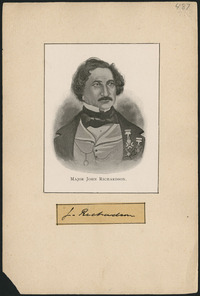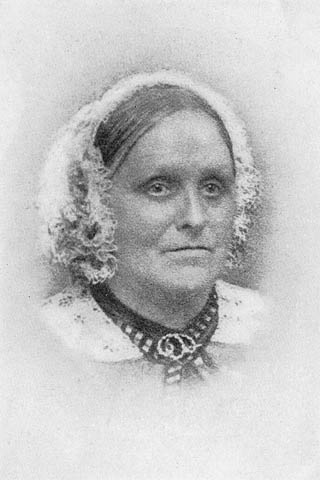In Thomas King’s novel Green Grass Running Water allusions to historic events and figures, pop culture, and different forms of literature are used to expand the reader’s possibilities for deeper understanding. The novel is still enjoyable if it is not read with the intention of catching all the allusions and puns that King includes however it is a rewarding experience to read a novel that challenges the reader to think more deeply and critically about the written words.
For this assignment I have chosen to analyze the interaction between Latisha and the Canadian tourists in the Dead Dog Café. Although their exchange is brief, lasting only from pages 156 to 169, King has left many hidden Easter eggs for the reader to find, making the chapter a very interesting one.
As Jane Flick notes in her reference guide, all of the tourists who we are introduced to by name are incarnations of past Canadian writers who all have some ties to Indian themes. Flick also notes that all of these figures are known for having exploited “Indianness” for the purposes of their work (154). The writers who we meet in the Dead Dog Cafe are Polly (Pauline) Johnson, Sue (Susanna) Moodie, Archibald Belaney, and John Richardson.
King first introduces the readers to these characters as they exit their tour bus and walk all together into the restaurant. While it appears that the tourists are in good spirits, Latisha and her restaurant staff seem to not enjoy the tourists as much, as can be gained from the chef Billy’s comment – “not Canadian, I hope” (155).
I interpreted the fact that the tourists are all wearing name tags, and are traveling together as possibly being a group on a writers retreat or a research trip for their work. The purpose of their trip is never made explicitly clear, although Sue states that they are “on an adventure,” and Archie’s comment that they are “roughing it” can be read as a direct reference to the title of Susanna Moodie’s famous book Roughing it in the Bush. However it is Archie who says to Latisha “what we really want to see are the Indians” (158).
I think this is King’s way of critiquing the works of the historical figures these characters represent, as all of them are known for exploiting native culture to benefit their writing. Thus we can assume that the research conducted by these past writers for their works, is not far off from the bright and cheery tourists at the Dead Dog Café who make it clear they are looking for an “authentic” Indian experience.
Research on any of the writers who the tourists allude to shows that their works rely on stereotypical Indian themes like the “Indian Maiden”, and the “Noble Savage”. Their works show a clear example of characterizing Indians to suit white audiences.

Archibald Belaney was known for the fraudulent Native identity he chose for himself “Grey Owl” to support his work as a conservationist writer, although he was British and had no Native background. King’s version of Archie is critiqued for this when Polly points out that Archie is from England “but he’s been here for so long he thinks he’s Canadian too” (158).

John Richardson was an author known for drawing on the themes of the noble savage, particularly in his 1832 novel Wacousta in which an Englishman transforms himself into a “savage” named Wacousta.

Susanna Moodie’s famous book Roughing it in the Bush, although seeming like a romantic piece meant to inspire sentiments of Canadian nationalism, is actually riddled with racist undertones for relying on the portrayal of Indians as “noble savages”.

Pauline Johnson, who was a Canadian poet of Mohawk and British heritage was known for exploiting her Native heritage to boost her popularity as a poet. This is referenced in King’s chapter when Sue mentions to Latisha that “Polly here is part Indian” (158). Johnson experienced a very privileged upbringing that was more informed by her British heritage, yet she is most known for reading her poetry in traditional buckskin dresses with feathers in her hair, and signing her poems with the name Tekahionwake to emphasize her Native Heritage.
Although Johnson’s Native heritage can be contested, because of the way her poems catered to a white audience, she was also known for writing critically about stereotypes and the challenging circumstances Native people faced in her 1893 short story A Red Girl’s Reasoning. When Polly says to Latisha “its alright, dear, not many people do” (158) when Latisha admits to never having heard of her book, is a reference to the fact that Pauline Johnson’s short stories and books never achieved as much popularity as her poetry.
Further, I think the $20 tip that Polly leaves under the copy of her book The Shagganappi (a book of short stories by Johnson, published after her death in 1913) shows that Polly has a certain level respect for Latisha that is greater than her companions. While the rest leave without supporting the restaurant and don’t purchase any menus (probably due to a perceived lack of authenticity) Polly leaves a more generous tip.
Reading about the works of these writers who the characters in King’s novel represent, I think it is ironic that all of them have claimed either directly or indirectly in their work to be enthusiasts of Native culture, yet as we see with Latisha and her restaurant staff’s reaction to the tourists, they are often quite ignorant. I think this exchange in King’s novel, however brief, is very powerful. By presenting these figures as naive tourists, he is decolonizing a Canadian literary canon that has been built on false and stereotypical representation of Native culture.
Works Cited
Flick, Jane “Reading Notes for Thomas King’s Green Grass Running Water“. Toronto, Harper Collins, 1994. Web. July 31 2016.
Grey Owl. n.d. Archives of Ontario. The Canadian Encyclopedia. Photograph. Web. July 31 2016.
“Indian Maiden”. TV Tropes. n.p . n.d. Web. July 31 2016.
Johnson, Pauline. “A Red Girl’s Reasoning”. The Mocassin Maker, 1893. Canadian Poetry Press. Web. July 31 2016.
King, Thomas. Green Grass Running Water. Toronto, Harper Collins, 1993. Print.
Macbride, Craig. “CanLit Canon Review #1 : Susanna Moodie’s Roughing it in the Bush”. The Toronto Review of Books. December 7 2011. Web. July 31 2016.
Lock, W. Fredrick. Major John Robinson. 1902. Print. Library and Archives Canada. Web. July 31 2016.
“Noble Savage”. TV Tropes. n.p . n.d. Web. July 31 2016.
“Pauline Johnson”. The Canadian Encyclopedia. n.p. n.d. Web. July 31 2016.
Pauline E. Johnson. McMaster University Library and Archives. Photograph. Web. July 31 2016.
Onyanga-Omara, Jane. “Grey Owl: Canada’s Great Conservationist and Imposter”. BBC News. September 19 2013. Web. July 31 2016.
Susanna Moodie. 1860. National Archives of Canada. The Canadian Encyclopedia. Photograph. Web. July 31 2016.

Hi Natasha,
Your research about the author tourists was very interesting and seems quite time-consuming, so props to you. I realize that your work focused more on the Native characters’ reactions to the authors in the novel, but I hope you don’t mind if my question is more based on your personal one.
I was wondering what thoughts on the authors were? Do you think that can or cannot write on native culture? And if not, does that then become a kind of censorship, where an author can then only write about what they have direct experience in? And how far does that extend: race, gender, geographical location, etc.? Sorry if this seems like a bombardment of questions, but I would love to know your thoughts.
Cheers
Hi Dilinie,
The research I did for this post was a bit time consuming, but I found it all very interesting so it was very rewarding! As for your question, I don’t mind you asking my personal opinion at all.
My opinion is that it is absolutely ok for a non-Native author to write Native characters in their stories, or even just write about Native culture. However, the way the characters and the culture are written are extremely important. The writer needs to recognize that they are writing about a culture that isn’t their own and should be careful to avoid offensive stereotypes and tropes. I think that its possible for non-Native writers to write about the culture in a very respectful way, and its not something that should be discouraged if it can be done properly.
That said, there are so many instances not just in literature, but in television and film, of non-Native writers relying on harmful stereotypes to portray Native characters and their culture because they do not know enough about it. The authors who visit the Dead Dog Cafe in particular are examples of how not to write about Native culture (and appropriating it! yikes, Belaney).
I’m not sure if others would agree with me in this regard, but I don’t think that writers should not be censored if they can effectively write about Natives in a respectful way. Although if it were to come down to a Native person having the chance to write about Native characters over a non-Native, I would say that the Native voice should be privileged in telling that story, because it is their culture after all!
Thank you for your question!
– Natasha
Hi Natasha,
It’s weird, on the Canadian Lit site Pauline Johnson is actually cited as being an advocate for Native American rights. I believe that her statue is in Stanley Park too. It really goes to show that representation/being an ally/acting within and without racial issues is always a double-edged sword. Thanks for all your hard work in researching these characters!
Hi Mia,
In the research I did I found a few articles on Pauline’s activism for Native rights so I definitely wanted to mention that in the post. Jane Flick’s reference guide makes her seem more like an appropriator of Native culture, rather than an activist for it, so I was a little unsure of how I should view her, and also how King views her!
I think were the critique for her lies is that she enjoyed a very privileged upbringing in a time when institutional racism was effecting the lives of other Natives. Johnson was able to enjoy the success in her poetry career by playing up her native heritage, but at the end of the day she did not really face the same class discrimination and racism that most Natives at the time did.
Of course the fact that she was half Native does not mean that she wasn’t Native, and didn’t have a right to dress in traditional clothes. But her portrayal of Native culture in her poetry really relied on harmful tropes that catered to her white audience. I think that’s another way she can be seen as a controversial figure.
I like your comment about how being an ally can be a double edged sword. Thanks for your comment!
– Natasha
Hi Natasha,
Thank you for your very insightful and detailed post and your research on these characters! It is definitely intriguing to me how Pauline decided to emphasize her own native heritage in an attempt to boost her popularity. I wonder, however, about the morality surrounding her “exploiting” the culture: is this something that has, in the long run, helped the Native people regain some of the respect and recognition among the “White” people, or instead only directly helped Pauline in making her own poetry well known?
Hey Natasha,
Great work on this! You did a great job on threading all of the characters together to make your point. While I was reading your piece on Grey Owl, I was reminded of one of my favourite articles by Eve Tuck and K Wayne Yang (http://decolonization.org/index.php/des/article/view/18630/15554) called, “Decolonization is not a metaphor”.
One of the settler’s move to innocence that they discuss is “settler nativism”. They say, “In this move to innocence, settlers locate or invent a long-lost ancestor who is rumored to have had “Indian blood,” and they use this claim to mark themselves as blameless in the attempted
eradications of Indigenous peoples… Settler nativism, or what Vine Deloria Jr. calls the Indian-grandmother complex, is a settlermove to innocence because it is an attempt to deflect a settler identity, while continuing to enjoy
settler privilege and occupying stolen land” (11, 12). I think King was maybe indicating towards the problem when White people pretend to be Native, and I think Tuck and Yang point to a good one. Wonder what your thoughts are on that?
Thanks,
Heather